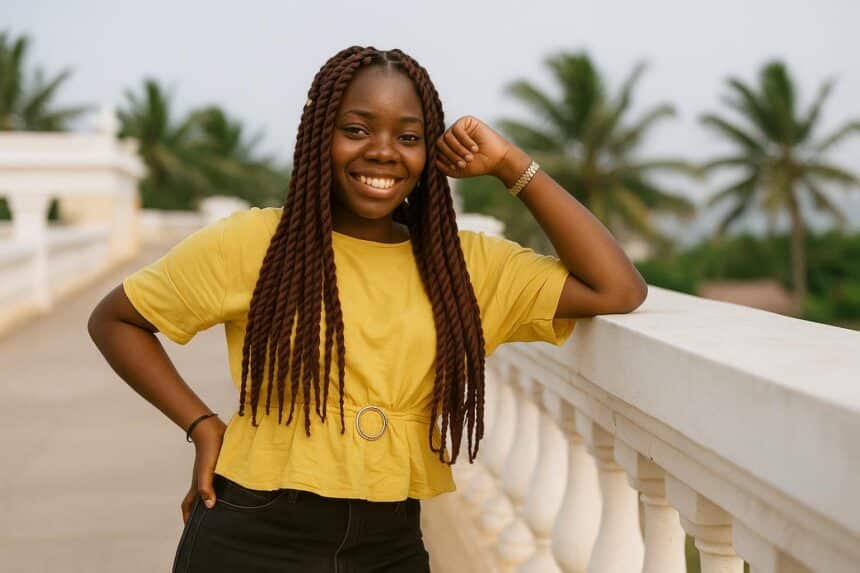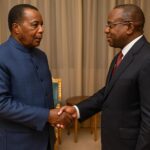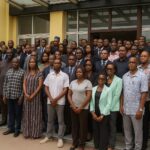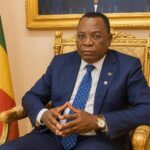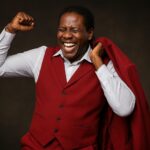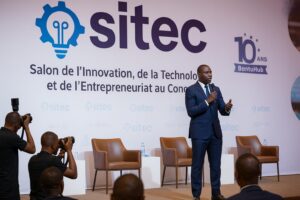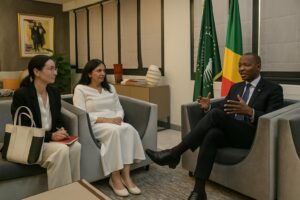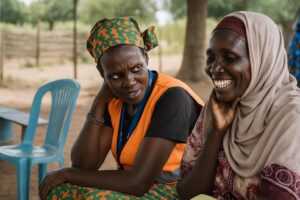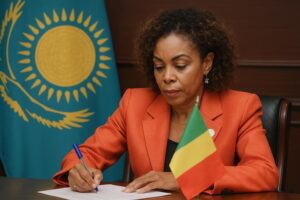From Brazzaville to a Continental Stage
A quick scroll on local social media was enough to feel the excitement: Chandrelle Mountoula Ngampo, barely in her mid-twenties, has just been appointed to the Youth Advisory Board of the Africa-Europe Youth Academy.
The announcement, relayed by the European Union delegation in Brazzaville, propels the young activist from neighbourhood community halls to a dialogue platform that covers 20 countries across sub-Saharan Africa.
For many observers, her selection confirms an emerging trend: Congolese voices are gaining ground in spaces that shape continental policies, especially on gender, health and inclusive growth.
Understanding the Africa-Europe Youth Academy
Launched under the EU-funded initiative ‘Mobilities of Young People for Africa’, the Academy is budgeted at €15 million over four years and operates within the broader Global Gateway Africa-Europe investment package.
Its stated goal is simple yet ambitious: equip future leaders with tools, networks and resources able to speed up sustainable development, from climate innovation to social entrepreneurship.
In practice, the programme pairs training modules, seed-funding windows and high-level exchanges with European institutions, ensuring that youth remain active partners rather than passive beneficiaries.
The Strategic Role of the Youth Advisory Board
Only seven seats exist on the Board, each representing one African sub-region. The members scrutinise the Academy’s curriculum, select grassroots projects and serve as ambassadors in their respective communities.
Their recommendations flow directly to the management consortium steered by the European Union and African civil-society organisations, making the Board a rare shortcut between street-level realities and Brussels decision rooms.
“We are invited to challenge, not to applaud,” Chandrelle commented in a voice message shared with classmates, highlighting the freedom given to the Board to critique budget lines and policy wording.
A Track Record Rooted in Social Justice
Long before hashtags and certificates, Chandrelle ran weekend workshops on reproductive health in Talangaï schools, insisting that information is the first vaccine against vulnerability.
As Executive Director of Agir pour les Femmes Congolaises, she now coordinates legal clinics for survivors of gender-based violence and micro-credit circles that have already supported 300 market women, according to internal association figures.
Her involvement with the EU youth council “Toza Bilenge” and the African Youth Initiative for Development sharpened her policy instincts, while mentorship from the International AIDS Society refined her advocacy on HIV prevention.
Skills Sharpened in Abidjan Training
The new appointment coincides with a two-week residency at Abidjan’s Alassane Ouattara University, where Africa CDC is hosting the first francophone Mental Health Leadership Program.
Sessions cover trauma-informed community outreach, budget planning for mental-health units and media engagement. Participants debate how to align national strategies with the WHO Comprehensive Mental Health Action Plan.
Organisers say the course aims to turn alumni into ‘multipliers’. Back home, Chandrelle plans to pilot peer-support clubs in Brazzaville’s public universities, a proposal she expects to refine with insights drawn from the Youth Advisory Board experience.
What It Means for Congolese Youth
For student union leader Bienvenu Ngoma, the nomination is “a morale booster that shows gatekeepers are opening”. He hopes it will encourage ministries to include young experts in task forces on the cost of living and digital jobs.
Government officials, while cautious, recognise the communication value. A senior staffer at the Ministry of Youth and Civic Education affirmed that sharing podiums with continental partners strengthens Congo’s credibility in future funding negotiations.
Above all, the story illustrates how local determination can meet international opportunity without leaving anyone behind—a message likely to resonate on mobile screens from Pointe-Noire bus stops to remote classrooms in Likouala.

